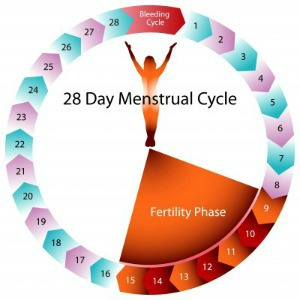
10:15 20th August 2014 | Ovulation
Conception Sex Female Reproduction Female Fertility Ovulated Eggs
Understanding ovulation is crucial for anyone trying to get pregnant, whether now or in the future. Rachel Gurevich of About.com highlights several important aspects of ovulation that are often misunderstood. To help you increase your chances of conception, here are six key things you should know about ovulation.
If you’re trying to get pregnant, having sex before you ovulate is essential. Sperm can survive in the female reproductive tract for up to five days, but the ovulated egg only has a 12 to 24-hour window to be fertilized. This means that having sperm ready and waiting for the egg is crucial. Most signs of ovulation, such as changes in cervical mucus and basal body temperature, appear in the days leading up to ovulation. This is your most fertile time.
Misinformation about ovulation and conception can significantly decrease your odds of getting pregnant. A survey of 1,000 women aged 18 to 40 revealed that many were confused or lacked essential information about female fertility. Understanding the basics of ovulation can help you make informed decisions about starting your family.
There are several signs that can indicate when you are about to ovulate. These include:
Ovulation predictor kits (OPKs) can be a helpful tool in identifying your most fertile days. These kits test your urine for a surge in luteinizing hormone (LH), which typically occurs 24 to 36 hours before ovulation. By using these kits, you can better time intercourse to increase your chances of conception.
Your overall health and lifestyle choices can impact your ovulation and fertility. Maintaining a balanced diet, exercising regularly, and managing stress are all important factors. Additionally, avoiding smoking and limiting alcohol intake can improve your reproductive health.
Every woman’s menstrual cycle is unique, and understanding the specifics of your cycle can help you pinpoint ovulation more accurately. A typical cycle ranges from 21 to 35 days, with ovulation occurring around the midpoint. Keeping a menstrual calendar or using a fertility app can help you track your cycle and predict ovulation more precisely.
Understanding ovulation is vital for anyone looking to conceive. By recognizing the signs of ovulation, timing intercourse correctly, and maintaining a healthy lifestyle, you can significantly increase your chances of getting pregnant. Stay informed, and don’t hesitate to seek professional advice if you have any concerns about your fertility. By educating yourself on these six aspects of ovulation, you can make more informed decisions about your reproductive health and increase your chances of starting a family when you’re ready.
Search by condition, treatment or keyword and conveniently browse our informative articles
Book an appointment online or search for a clinic close to you.
Book an Appointment